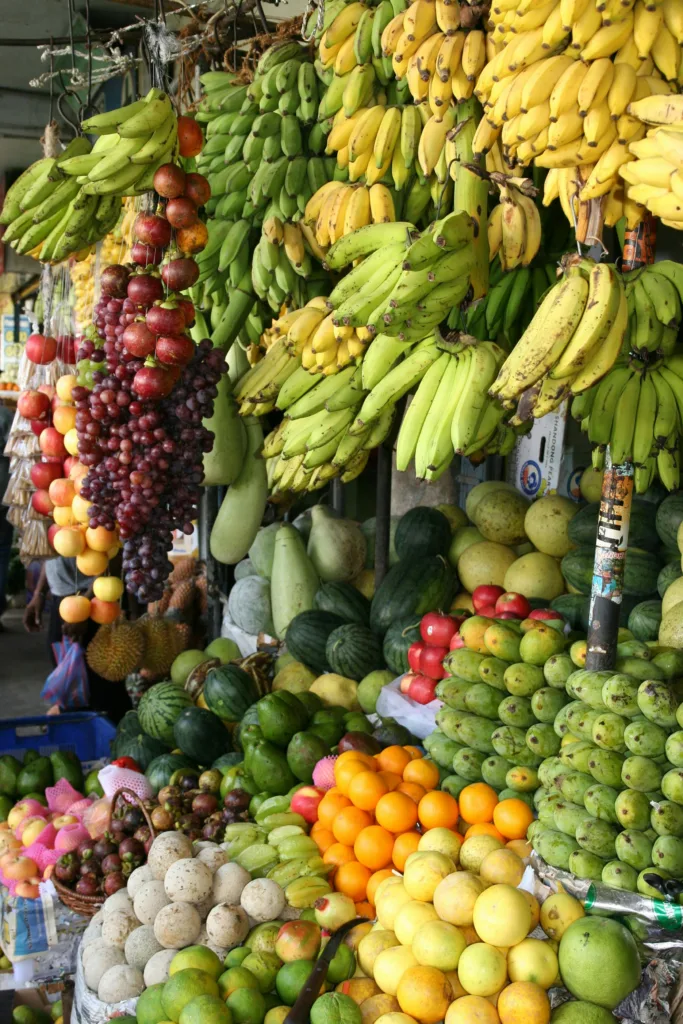3 Essential Do’s and Don’ts for Enjoying Seasonal Fruits: The Right Way to Boost Your Health!

In a world where eating seasonal fruits has become a popular trend for better health, many still wonder—are they consuming them the right way? It’s not just about picking up fruits from the grocery store or the farmer’s market; how and when you consume them can make a huge difference. Below are 3 key do’s and don’ts that can help you get the most out of your seasonal fruits.
1. Do Choose Local & Seasonal Fruits for Maximum Nutrition
When you opt for fruits that are grown locally and are in-season, you’re not just supporting your local farmers—you’re also reaping incredible nutritional benefits. Seasonal fruits are naturally fresher, meaning they retain more vitamins, minerals, and antioxidants than those that have been stored for longer periods. Whether it’s the juicy strawberries of spring or the sweet watermelon of summer, these fruits are better suited to your body’s nutritional needs during that particular time of year.

Why?
Eating locally grown fruits helps to ensure you’re getting the freshest, most nutrient-dense produce. These fruits are grown in harmony with the local environment, making them better suited to support your body’s seasonal needs. Additionally, choosing seasonal produce often means fewer pesticides and chemicals, as local farmers are more likely to focus on sustainable practices.
Social Media Views:
Many health-conscious individuals love sharing their local fruit finds on social media, encouraging others to support sustainable farming. You can join the movement by sharing your seasonal fruit picks with hashtags like #SeasonalEating or #EatLocal.
Hyperlink Example: Learn more about the benefits of local, seasonal eating and how it boosts your health!
2. Don’t Overeat, Even Healthy Fruits Can Cause Imbalance
While fruits are undeniably healthy, consuming too much of even the best fruits can lead to digestive issues, such as bloating or an imbalance in your digestive system. Fruits contain natural sugars, and while they’re much healthier than processed sugar, overconsumption can still affect your blood sugar levels and digestion.
Why?
Excessive fruit consumption, especially when eaten all at once, can lead to bloating and discomfort. The high water content in fruits can also cause frequent trips to the bathroom, disrupting your routine. Balance is key to ensuring you’re getting the right amount of fruit to support your health.
Social Media Views:
Health influencers often share tips on portion control when it comes to fruits. Many recommend the “handful rule,” which suggests eating a portion of fruit roughly the size of your palm to maintain a balanced diet. You can easily find people discussing their portion-control strategies with hashtags like #FruitModeration or #HealthyPortionSizes.
Hyperlink Example: Find out how much fruit you should be eating for optimal digestion.
3. Do Eat Fruits on an Empty Stomach for Better Digestion
One of the best ways to absorb all the nutrients from your fruits is by consuming them on an empty stomach. Whether it’s a refreshing morning smoothie or a handful of fruit before lunch, this habit can improve your digestion and nutrient absorption. The fruit’s enzymes will get to work faster when your stomach is empty, leading to better breakdown and assimilation of the vitamins and minerals.
Why?
Eating fruits on an empty stomach aids in faster digestion because your body doesn’t have to work hard to break down complex foods like protein or carbs. The natural sugars in fruits provide instant energy, which can help kick-start your metabolism and improve overall digestion.
Social Media Views:
Many people share their morning fruit-based rituals on social media, from smoothies to fruit bowls, highlighting how they benefit from eating fruits first thing in the morning. Join the conversation by using hashtags like #FruitForBreakfast or #MorningFruitBoost.

Hyperlink Example: Discover the best fruits to eat on an empty stomach for maximum health benefits.
Social Media Post Ideas: Share Your Seasonal Fruit Habits!
Feeling inspired by the seasonal fruit tips shared in this blog? Why not take it to social media and show your followers how you’re enjoying fruits the right way? Here are some post ideas to share with your audience:
Social Media Post 1: “Eating seasonally not only supports local farmers, but it’s the best way to nourish your body with fresh, nutrient-packed fruits! 🍓🍉 Here’s a peek at my local fruit haul today—fresh, ripe, and bursting with vitamins! 🌞 #SeasonalEating #EatLocal #FruitPower”
Hyperlink Example: Learn more about why seasonal eating benefits your health
Social Media Post 2: “Who knew that eating fruit on an empty stomach is one of the best ways to improve digestion? Start your day with a sweet, juicy fruit snack to give your metabolism a natural boost! 🍊🍏 #HealthyStart #FruitForBreakfast #MorningFruitBoost”
Hyperlink Example: Discover the digestive benefits of eating fruit first thing
Social Media Post 3: “Don’t overdo it on fruits—even healthy foods can cause imbalance if you’re not careful. Balance is the key! 🍌🍇 Check out my tips for portioning fruit without overindulging. #FruitModeration #HealthyPortionSizes #BalanceIsKey”
Hyperlink Example: Find out the best practices for fruit portion control
These posts can encourage your followers to share their own seasonal fruit habits while learning the importance of eating them the right way! Feel free to use these captions or create your own based on the tips from this blog.
4. Don’t Mix Fruits with Meals—Give Them Their Own Space
It’s tempting to toss some fruit into a salad or have a piece of fruit as a side with your lunch, but this can disrupt your digestive process. Fruits should ideally be consumed on their own, away from proteins, grains, or dairy. Combining fruits with meals can lead to digestive discomfort, such as bloating or gas.

Why?
Fruits digest at a different rate compared to proteins and starches. When you combine them, the fruits may ferment in your stomach while waiting for the other foods to digest, causing discomfort and slowing down nutrient absorption. Let fruits do their thing, and your digestion will thank you!
Social Media Views:
The “fruit-only meal” trend has been growing on social media, with health enthusiasts promoting fruit-based snacks or light meals that keep digestion smooth and efficient. Check out the growing community using hashtags like #FruitOnly or #DigestiveHealth.
Hyperlink Example: Find out how to combine fruits properly for smoother digestion.
5. Do Follow the Sun Cycle—Eat Fruits in the Morning or Early Afternoon
Your digestive system is at its peak efficiency during the morning and early afternoon. By eating fruits during this time, you’re taking advantage of your body’s natural digestive cycle. Eating fruits when your metabolism is high helps ensure that your body can process them easily and absorb all their nutrients.
Why?
Your digestive “fire” or energy is strongest earlier in the day. Consuming fruits at these times allows for better digestion, and it can also give you a natural energy boost, helping you stay alert and active throughout the day.
Social Media Views:
Sharing tips on eating in alignment with the body’s natural cycles has gained popularity on social media, especially with the growing trend of mindful eating. People often share their morning fruit rituals and discuss how it helps them feel energized, using hashtags like #MorningFruitRitual or #DigestiveFire.
Hyperlink Example: Learn why eating fruits earlier in the day supports optimal digestion.
6. Don’t Eat Fruits Late at Night—Avoid Disturbing Your Sleep
Fruits, especially those high in natural sugars, should ideally not be eaten too close to bedtime. The sugar content can spike your energy levels, making it harder for you to fall asleep. Moreover, fruits are light and quick to digest, which can leave your digestive system working overtime while you’re trying to relax.

Why?
Eating fruits late at night can disrupt your sleep cycle. It can also interfere with the body’s natural ability to rest and repair overnight. To avoid this, try to finish your fruit intake by late afternoon or early evening, giving your body time to digest before bedtime.
Social Media Views:
Many health advocates have shared their nighttime habits on social media, highlighting the importance of avoiding late-night fruit consumption. You’ll find a variety of tips for better sleep with hashtags like #SleepBetter or #FruitAtNight.
Hyperlink Example: See why it’s best to skip fruit close to bedtime for better sleep.






